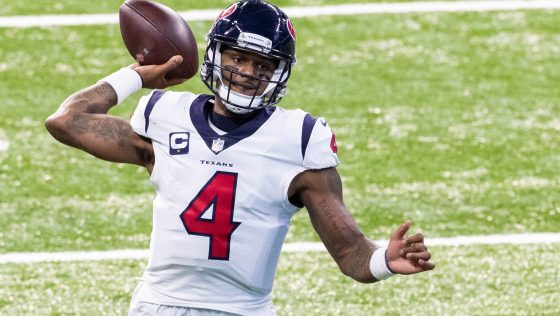USA Today Sports
On Friday, the grand jury will finally consider criminal complaints filed last year against the Texas quarterback Deshaun Watson. Will the criminal process end today?
The day only ends if the grand jury decides not to charge Watson with any crime. Although there is quiet optimism in the Watson camp that he will not be indicted because the allegations against him do not rise to the level of criminal conduct, it is possible to commit one or two misdemeanours.
But misdemeanors can be managed, with a prompt plea of guilt or no competition, or entry into a diversion program. However, any of these results would actually warrant suspension. The question is whether Watson will fight misdemeanours in hopes of avoiding or diminishing the discipline that the league imposes.
Friday’s result will be heavily influenced by the attorney general’s enthusiasm. The same latitude that allows a prosecutor to indict a ham sandwich (given that a ham sandwich has no lawyer in the room and no right to present evidence or a contradictory argument) gives the prosecutor the ability to design a decision not to indict a particular suspect, If the prosecutor chooses to present exculpatory evidence and/or point out defects in the case.
Currently, we don’t know if and to what extent the attorney general is determined to bring an indictment against Watson. But there is one possible clue in the timing of the evidence being presented to the grand jury.
Attorney Rusty Harden previously expressed confidence that the grand jury’s work would be completed by April 1. With the grand jury receiving the case today, it is likely that the attorney general has decided to adjust the schedule in an effort to allow Watson to secure professional clarity as the league’s annual deliberation/free agency period begins.
In other words, if the attorney general is intent on making things as difficult for Watson as possible, the attorney general will drag on, forcing Watson to watch the opportunities disappear as his legal situation remains unresolved. Moving on now, the attorney general is arguably looking forward to fairness with Watson.
In turn, this could mean that the attorney general would make a fair and balanced presentation of evidence, rather than seizing the opportunity to have a grand jury convict Watson of the worst possible charges, regardless of whether an eventual indictment is likely.
However, it is up to the grand jury to decide whether to proceed with formal charges. That decision may come today, or it may come later.


